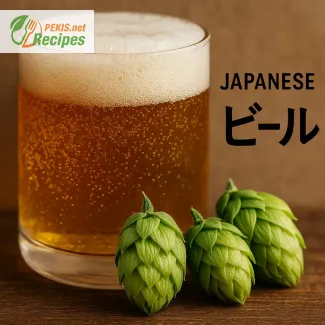
From crisp, refreshing lagers to complex craft brews infused with yuzu or matcha, Japanese beers blend tradition with modern creativity. Rooted in meticulous brewing heritage and shaped by regional flavors, they offer a diverse spectrum for every palate. Discover iconic brands, unique techniques, and pairings that elevate both Japanese and global cuisine.
Exploring the World of Japanese Beers Beyond Tradition
A journey through flavor, culture, and innovation
From the rich malt depth of classic lagers to the delicate floral aromas of craft-brewed ales, Japanese beers offer a unique bridge between tradition and modern brewing creativity. Rooted in meticulous craftsmanship, these brews reflect a culture where attention to detail transforms every sip into a nuanced experience. Whether you’re discovering a crisp, refreshing Asahi Super Dry, savoring the smooth balance of Sapporo Premium, or exploring the complex layers of small-batch craft beers from Tokyo’s microbreweries, the diversity is astonishing.
Origins and historical journey of Japanese beer
Beer arrived in Japan in the mid-19th century through foreign influence, primarily from Dutch traders and German brewing traditions. The first Japanese brewery, established in Yokohama in 1869, embraced European methods while adapting them to local tastes. Over time, major brewers like Kirin, Asahi, and Sapporo set the foundation for what is now a global reputation for quality and refinement. This legacy blends lager purity with contemporary innovations such as seasonal brews, fruit-infused beers, and sake-inspired styles that pay homage to Japan’s broader fermentation culture.
Key highlights in Japanese beer culture
- Heritage brands with over a century of brewing expertise.
- Craft beer revolution gaining momentum in major cities and rural regions alike.
- Distinct flavor profiles influenced by pristine water sources and premium ingredients.
- Seasonal specialties like spring sakura ales and autumn chestnut beers.
- Pairing versatility with both Japanese and international cuisines.
Why you will love this article
- Discover how Japanese beer styles differ from Western brewing traditions.
- Learn about the unique brewing techniques rooted in cultural heritage.
- Get inspired to explore regional specialties and microbrewery innovations.
- Understand the perfect food pairings for each beer style.
- Explore the fusion of sake culture with modern beer brewing.
Flavor spectrum and brewing diversity
Japanese brewers excel at creating beers with clean finishes, often leaning toward lager profiles for their mass-market appeal. However, the craft beer scene has expanded this spectrum, introducing IPAs with bold hop character, stouts rich in roasted malt, and experimental hybrids infused with ingredients like yuzu, matcha, or sansho pepper. This balance between subtlety and innovation ensures there’s a Japanese beer to suit every palate.
Modern trends and international recognition
Global demand for Japanese beers has grown steadily, thanks to both their consistent quality and the rising popularity of Japanese cuisine worldwide. Exports of Sapporo, Asahi, and Kirin have surged, while Japanese craft beers are making their mark in international competitions. The domestic scene continues to thrive, supported by festivals, beer tourism, and collaborations with foreign breweries that bring new styles and brewing knowledge to Japan.
Cultural and culinary connections
Beer in Japan is not just a beverage; it’s woven into the social fabric. From casual izakaya nights to formal corporate gatherings, beer is a symbol of hospitality and camaraderie. It pairs effortlessly with Japanese dishes like yakitori, tempura, and ramen, as well as with international fare. The rise of beer and food pairing menus in Tokyo’s gastropubs and Kyoto’s fine dining spots showcases how beer can elevate dining experiences.
Notable Japanese beer experiences
- Tokyo craft tours visiting small urban breweries.
- Sapporo Snow Festival featuring seasonal beer selections.
- Kyoto brewing houses blending ancient sake traditions with beer innovation.
- Okinawa specialty beers made with local fruits and unique yeasts.
The path ahead for Japanese brewing
As consumers seek both authenticity and novelty, Japanese brewers are positioned to lead with products that honor their past while embracing change. Whether through sustainability initiatives, organic ingredients, or adventurous flavor experiments, the industry continues to evolve without losing its commitment to precision and balance.
In the next sections, we will delve deeper into individual beer profiles, regional differences, and how to select the right Japanese beer for your next culinary adventure.
FAQ questionWhat makes Japanese beers unique compared to other countries?
Japanese beers are known for their clean, crisp profiles, high-quality ingredients, and meticulous brewing methods. They often balance subtle flavors with refreshing drinkability, making them versatile for many occasions.
FAQ questionAre Japanese beers mostly lagers?
Yes, the majority of mass-produced Japanese beers are pale lagers, but the craft beer scene has introduced a wide variety of styles, including IPAs, stouts, and fruit-infused ales.
FAQ questionWhich are the most popular Japanese beer brands?
Globally recognized brands include Asahi Super Dry, Sapporo Premium, and Kirin Ichiban, each with distinct flavor characteristics.
FAQ questionDo Japanese beers pair well with non-Japanese food?
Absolutely. While they excel with Japanese dishes like sushi or yakitori, their clean flavors complement international cuisines, including grilled meats, seafood, and spicy dishes.
FAQ questionIs Japanese craft beer available outside Japan?
Yes, many Japanese craft breweries export their beers, and collaborations with international breweries are increasingly common, making them more accessible worldwide.
FAQ questionWhat are some unique ingredients used in Japanese craft beers?
Brewers often incorporate local flavors like yuzu citrus, green tea (matcha), rice, and sansho pepper for distinctive aroma and taste profiles.
PEKIS – professional chef and recipe developer with over 25 years of experience, specializing in European and international cuisine, with extensive expertise in pairing beverages like Japanese beers with diverse culinary traditions.